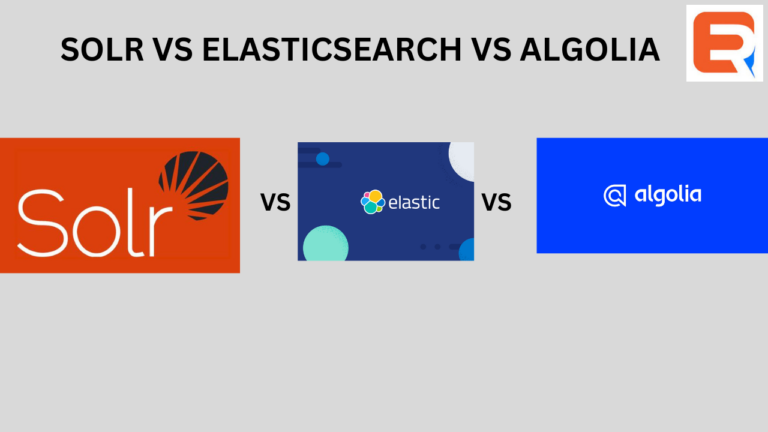One of the backbones of a successful business is the ability to handle data and serve information faster and effortlessly. The basic feature of a modern system or application software is “Search”. However, for your businesses to provide outstanding service, you must make your product or service easily accessible or searchable to users. The user can input a particular query, and the search engine responds by delivering lists of results that match the user’s query.
All good search software should have the capacity to handle data. And this is why Elastic search is a good recommendation for all eCommerce businesses. It is a smart search engine that can help customers search for their preferred services or product easily on your website.
To understand more about elastic search, let’s dive in, starting with “What Elastic search is”, and then we will further analyze all other aspects.
Introduction to Elastic search

Elastic search is a modern, open-source search and analytics engine built on Apache Lucene version 2.0. Elastic search has become one of the most popular search engines and has been accessible since its release in 2010.
An Elastic search as a NoSQL database developed in Java, allowing you to quickly search, store and analyze large volumes of data (structured, unstructured, textual, and numerical) and give back responses at a very high speed.
What elastic search is used for
Elasticsearch is an enterprise search engine with lots of use cases. It supports many different languages, such as Python, C#, PHP, Apache Groovy, Ruby, and other languages.
Elasticsearch is commonly used for full-text search, product search, spell checker, autocomplete, security intelligence, alerting engine, auto-suggest, log, data analytics, and so on. Elastic search can be used to search and store any type of data and improve search performance.
Who needs elastic search?
As mentioned earlier, elasticsearch is a popular search engine. It is used commonly by businesses, and currently, it is being used by most big companies like Shopify, GitHub, eBay, Uber, Wikipedia, Slack, The Guardian, etc.
Retailers use it to list or index their product catalogs, along with the product detail or feature, which thereby helps clients instantly find the specific product they are searching for in their store.
Additionally, most businesses or organizations use it to access an enormous database seamlessly.
How does elastic search work
Complex queries with enormous information can take a long time to process, thereby delaying accessibility to a product or service. This can reduce productivity and revenue, as customers may lose attention in your store due to the delays.
The elastic search compiles data from numerous stores, places, and inventories and indexes it according to the user’s specific search.
Elastic search as a distributed search engine makes it possible to quickly search and assess large volumes of data. In addition, it can increase query responses because it directly searches an index rather than the text.
Some key concepts of Elastic search
Documents
Documents are the basic component of information that a node can index. It is stored in JSON format. It can be viewed as a row on a database, indicating a given entity. “The entity” is the item you are searching for. The document can be any structured data like text, numbers, dates, and strings. Each document is linked with a unique identifier called UID.
Index
An index is a collection of different types of documents and their characteristics. It is similar to a database in a relational database schema. Documents in an index are logically connected. Additionally, an Index is a data organization mechanism that uses shards to increase performance and distribute data around the cluster.
Node
A node refers to a single or individual elastic search server where data can be searched, indexed, and stored.
Cluster
This is a collection of different nodes that are connected. A cluster provides collective indexing, searching, and distribution of tasks across all the nodes.
Shard
Indexes are subdivided into multiple pieces known as shards. Each shard contains all the properties of the document, and it also remains a functional and independent index that can be stored in any node.
Replicas
Elastic search allows users to create replicas of their indexes and shards. In case of loss, this helps in improving the availability of data.
Benefits of elastic search
Speed
Elastic search performs searches extremely fast. It collects data from apps, analytics, and system metrics and indexes it so the data can be retrieved with a search query for the result set.
Easily Scalable
Elastic search as a distributed search engine can be scaled up to thousands of servers because it doesn’t use a central server. It is scalable across multiple nodes.
You can start with a single node or two nodes. If the load grows, in that case, you can scale across numerous nodes. Elastic search is created to operate perfectly fine on any system or cluster of nodes. The nodes are added to increase query capacity.
Elastic search distributes your data and query across all the nodes, creating a scalable and functional result.
Provides lots of search options

Elastic search executes many of its features in search ranging from full-text search, autocompletion, faceted search, full-text search, and instant search. Also, it is good for spelling errors; you can find whatever you are searching for even though you misspelled the keyword.
Document-Oriented
Elastic search is document-oriented. It uses JSON format to store complex entities as documents and indexes all records by default, and it is easy and simple to read, resulting in higher performance.
Multilingual
Elastic search being multilingual means it is available in numerous languages. Therefore, people of different regions or localities can use it in their unique languages.
A perfect Example of Elastic Search
A perfect example of an elastic search is the Expertrec Smart Search for ecommerce websites like Shopify, Woocommerce, Magento, and Custom Stack. It helps users to store previous searches on an ecommerce site and use it to optimize all their search activities on the website. It also filters the right search results even if the customer gets the spelling wrong. It is an effective tool and equally, a must-have for all serious eCommerce business owners.
Conclusion
Elastic search has rapidly become one of the most effective and exciting search engine tools. Organizations or businesses that need to serve information faster and provide adequate customer service to users can put elastic search to good use for better results as it can streamline your enterprise desires.







